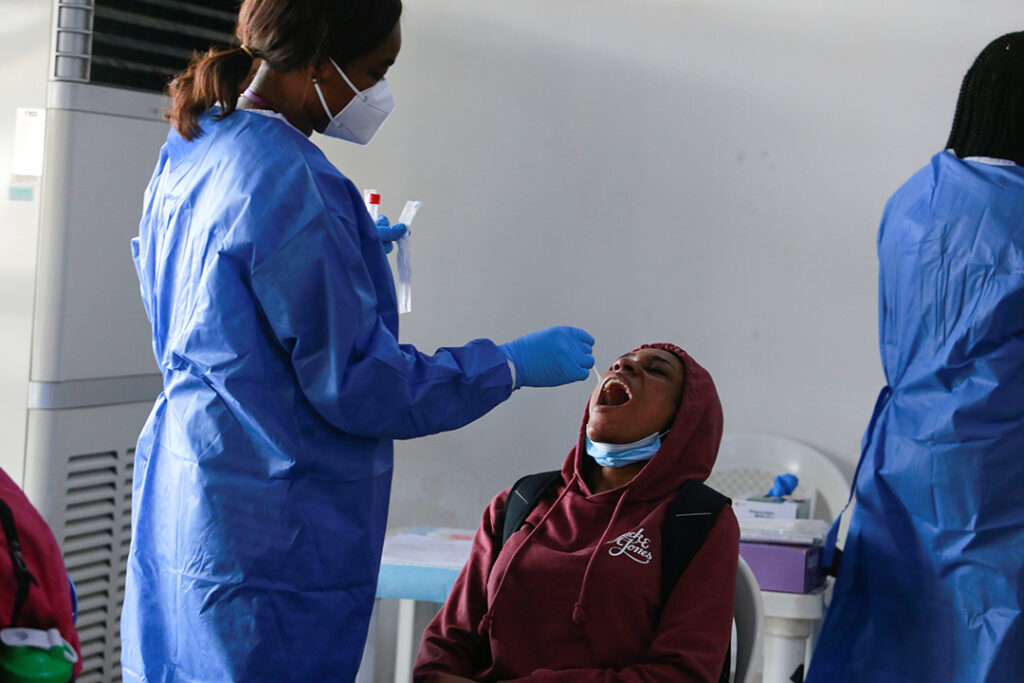ADF STAFF
New studies suggest that bits of COVID-19 can linger in a patient’s gastrointestinal system for months after the person is infected.
Ami Bhatt, an oncologist and geneticist at Stanford University in California, and Timon Adolph, a gastroenterology internist at the Medical University of Innsbruck in Austria, led separate studies. In the pandemic’s early days, the number of COVID-19 patients who experienced vomiting, diarrhea, abdominal pain and other gastrointestinal issues baffled both Bhatt and Adolph.
“At that time, this was thought to be a respiratory virus,” Bhatt, who referred to the lingering coronavirus bits as “ghosts,” told Nature magazine.
To determine if the ghosts contribute to long COVID, Bhatt’s team collected stool samples from coronavirus patients, while Adolph and his colleagues collected gastrointestinal tissue biopsies. The Stanford study was published in April, while the Medical University of Innsbruck was published in May.
Long COVID occurs when coronavirus patients experience long-term effects that can last weeks, months or years. Researchers have not yet directly linked ghost fragments to long COVID, Bhatt said.
“Additional studies still need to be done — and they’re not easy,” Bhatt told Nature.
The Stanford study suggests that COVID-19 infects a patient’s gastrointestinal tract and that the symptoms can be prolonged.
The Medical University of Innsbruck found that 32 of 46 study participants who had mild COVID-19 showed evidence of viral molecules in their gut seven months after infection; 24 of the 32 people had long COVID symptoms.
“Our results indicate that SARS-CoV-2 antigen persistence in infected tissues serves as a basis for postacute COVID-19 [or long COVID],” Adolph’s team wrote.
Another team of researchers collected tissue from the autopsies of 44 people who were diagnosed with COVID-19 and found evidence of the virus in the heart, eyes and brain, further suggesting that COVID-19 isn’t merely a respiratory illness. That study has not been peer-reviewed, Nature reported.
Long COVID
A March 2022 study by the journal Radiology found that about half of the nearly 100 COVID patients examined had persistent lung damage a year after infection.
Other long-term effects from COVID-19 include fatigue, palpitations, shortness of breath, muscle fatigue, chronic cough, insomnia and “brain fog” that are present at least three months after the initial infection.
Veronica Ueckermann, adjunct professor in the Department of Internal Medicine at the University of Pretoria in South Africa, said long COVID is less dramatic than acute infection, but can significantly affect a patient’s quality of life.
“The incidence of long COVID is higher among patients who were hospitalized. But it has been described in mild acute infection too,” Ueckermann told The Conversation Africa. “The functional impairment associated with long COVID is having significant social, psychological and economic effects on individuals and their communities.”
Ueckermann said investigating and managing patients with long COVID “is likely to continue to be an additional burden on heavily-strained healthcare systems.”

